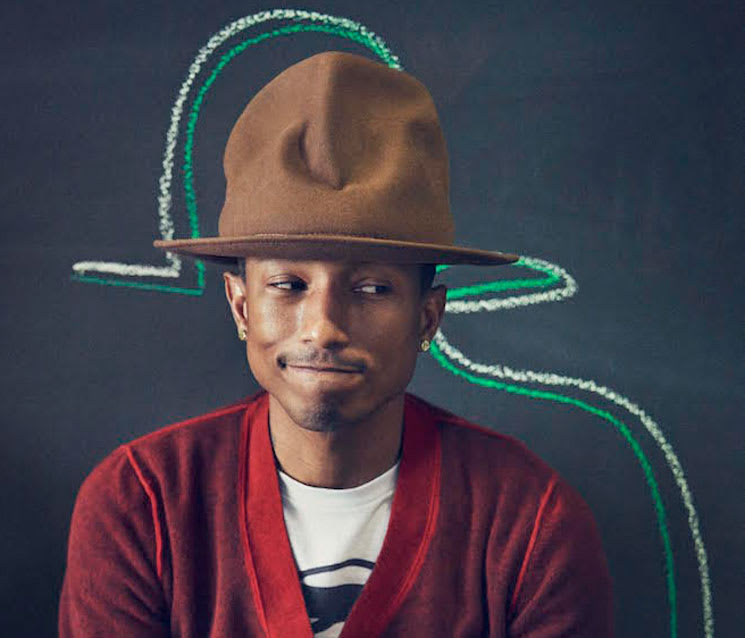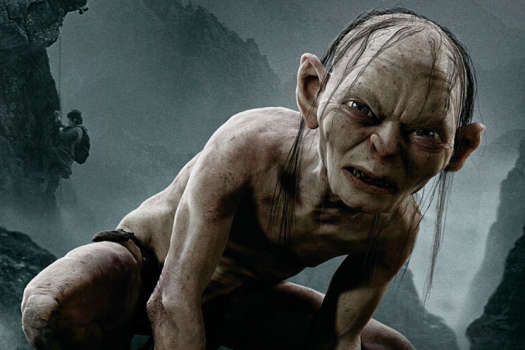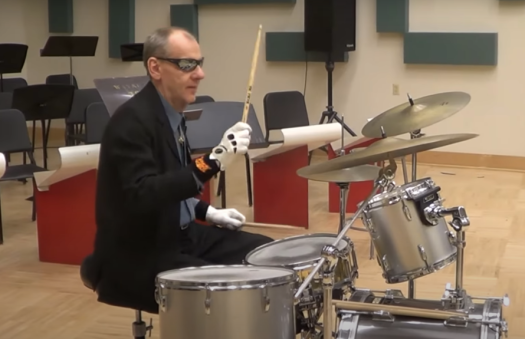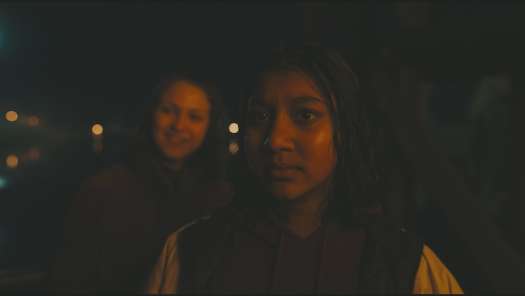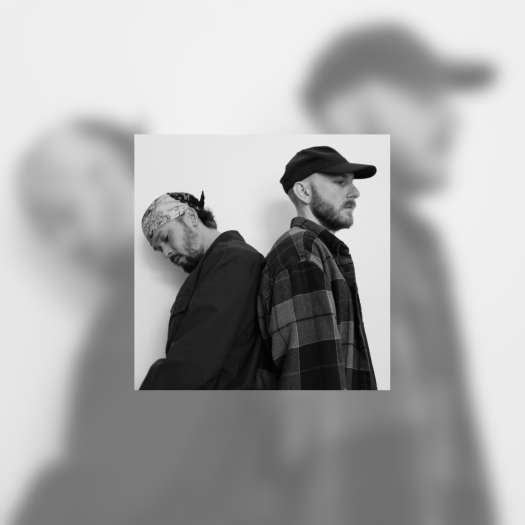Known mononymously as Pharrell, the man born Pharrell Williams is a musical force of nature. As a producer, songwriter, recording artist, composer, designer and influencer, the question isn't who he's worked with, but who he hasn't worked with to create hit records.
Hailing from Virginia Beach, VA, and beholden to his love of skateboard culture, "Skateboard P" is a music and culture icon who has added a dimensionality to popular music that helped shift rap and R&B culture beyond its respective "grimy thug" and "baby baby please" periods, moved pop to embrace minimalism and influenced urban culture in assimilating a post-bling style.
Our latest Timeline, out now in the March issue of Exclaim!, tracks Pharrell's career from his beginnings as a skateboarding, band camp nerd from the South, to forming the mega-successful production team the Neptunes with childhood friend Chad Hugo, to winning multiple Grammy awards from the turn of the century to today. You'll have to grab an issue to read the whole thing, but below, we've clipped out some highlights to tide you ever before you get your hands on a copy.
Five Noteworthy Facts You May Not Know About Pharrell Williams:
1. Listening to A Tribe Called Quest records kick-started Pharrell's love of music.
His love for music manifests at an early age; he recalls that the first album he ever bought was by hip-hop group A Tribe Called Quest. "As a kid, my aunt and I used to sit in front of the stereo and just play records," Williams will tell CosmoGirl magazine in 2004. "She was a singer-songwriter type of person — she loved Stevie Wonder — and I got all that from her.
"We were just trying to imitate the beats we admired, you know?" Williams will later say in a 2004 interview. "We were major Tribe Called Quest fans, so we were just trying to imitate that for a while. I mean, when it's overly analyzed, when you over-analyze it yourself… it can become difficult. But when you are free-spirited about the way you play your music, and let your instinct run things, it's cool."
2. Pharrell was first discovered at a high-school talent show by producer Teddy Riley; his first taste of stardom was writing a verse to Wreckx-n-Effect hit "Rump Shaker" in 1992.
Working with the multiplatinum-selling producer Riley — who worked with artists such as Michael Jackson and MC Hammer — changes Pharrell's life forever. He'll tell Nardwuar in 2013: "We were desperately just making music, taking songs apart and seeing how they worked. The studio was adjacent to our school. [Riley] sent this guy over to see us, and the rest is history."
Describing [Pharrell and Chad Hugo's] sound, Riley will later say: "It was like R&B meets techno/new wave/hip-hop."
3. Pharrell has synaesthesia, the ability "see" music in terms of colour.
He attributes his attraction to music to his synaesthesia, the enhanced ability to associate and "see" music in terms of colours; he will tell Psychology Today in 2012: "Colors are light in the electromagnetic spectrum. For every color, there is a sound, a vibration, a part of the human body, a number, a musical note."
4. As one half of production team the Neptunes, with childhood friend Chad Hugo, Pharrell's worked with almost everyone in the music industry — including artists like the Clipse, Justin Timberlake, Britney Spears, Shakira, Jennifer Lopez, the Game, Lupe Fiasco, Beyoncé, Usher and Frank Ocean. In 2003, a U.S. survey revealed that Pharrell/the Neptunes had produced 43 percent of songs on the radio at the time.
"Our group always had a specific sound people never really understood," Hugo will tell Vibe Magazine in 2001, of the duo's genre-bending blend. "We allowed our mind to wander and most people don't."
Adds Pharrell: "We just want to be more creative and pull some shit out from the left and create a whole new era."
5. Pharrell scored a hit with Robin Thicke's single "Blurred Lines," but the estate of soul singer Marvin Gaye successfully filed a lawsuit against songwriters Williams and Thicke for copyright infringement, claiming that it ripped off Gaye's late '70s hit "Got to Give It Up."
Williams vehemently disagrees with the lawsuit verdict, telling The Financial Times that the verdict handicaps artists creating content that might have been inspired by something else. "This applies to fashion, music, design — anything. If we lose our freedom to be inspired, we're going to look up one day and the entertainment industry as we know it will be frozen in litigation. This is about protecting the intellectual rights of people who have ideas."
Hailing from Virginia Beach, VA, and beholden to his love of skateboard culture, "Skateboard P" is a music and culture icon who has added a dimensionality to popular music that helped shift rap and R&B culture beyond its respective "grimy thug" and "baby baby please" periods, moved pop to embrace minimalism and influenced urban culture in assimilating a post-bling style.
Our latest Timeline, out now in the March issue of Exclaim!, tracks Pharrell's career from his beginnings as a skateboarding, band camp nerd from the South, to forming the mega-successful production team the Neptunes with childhood friend Chad Hugo, to winning multiple Grammy awards from the turn of the century to today. You'll have to grab an issue to read the whole thing, but below, we've clipped out some highlights to tide you ever before you get your hands on a copy.
Five Noteworthy Facts You May Not Know About Pharrell Williams:
1. Listening to A Tribe Called Quest records kick-started Pharrell's love of music.
His love for music manifests at an early age; he recalls that the first album he ever bought was by hip-hop group A Tribe Called Quest. "As a kid, my aunt and I used to sit in front of the stereo and just play records," Williams will tell CosmoGirl magazine in 2004. "She was a singer-songwriter type of person — she loved Stevie Wonder — and I got all that from her.
"We were just trying to imitate the beats we admired, you know?" Williams will later say in a 2004 interview. "We were major Tribe Called Quest fans, so we were just trying to imitate that for a while. I mean, when it's overly analyzed, when you over-analyze it yourself… it can become difficult. But when you are free-spirited about the way you play your music, and let your instinct run things, it's cool."
2. Pharrell was first discovered at a high-school talent show by producer Teddy Riley; his first taste of stardom was writing a verse to Wreckx-n-Effect hit "Rump Shaker" in 1992.
Working with the multiplatinum-selling producer Riley — who worked with artists such as Michael Jackson and MC Hammer — changes Pharrell's life forever. He'll tell Nardwuar in 2013: "We were desperately just making music, taking songs apart and seeing how they worked. The studio was adjacent to our school. [Riley] sent this guy over to see us, and the rest is history."
Describing [Pharrell and Chad Hugo's] sound, Riley will later say: "It was like R&B meets techno/new wave/hip-hop."
3. Pharrell has synaesthesia, the ability "see" music in terms of colour.
He attributes his attraction to music to his synaesthesia, the enhanced ability to associate and "see" music in terms of colours; he will tell Psychology Today in 2012: "Colors are light in the electromagnetic spectrum. For every color, there is a sound, a vibration, a part of the human body, a number, a musical note."
4. As one half of production team the Neptunes, with childhood friend Chad Hugo, Pharrell's worked with almost everyone in the music industry — including artists like the Clipse, Justin Timberlake, Britney Spears, Shakira, Jennifer Lopez, the Game, Lupe Fiasco, Beyoncé, Usher and Frank Ocean. In 2003, a U.S. survey revealed that Pharrell/the Neptunes had produced 43 percent of songs on the radio at the time.
"Our group always had a specific sound people never really understood," Hugo will tell Vibe Magazine in 2001, of the duo's genre-bending blend. "We allowed our mind to wander and most people don't."
Adds Pharrell: "We just want to be more creative and pull some shit out from the left and create a whole new era."
5. Pharrell scored a hit with Robin Thicke's single "Blurred Lines," but the estate of soul singer Marvin Gaye successfully filed a lawsuit against songwriters Williams and Thicke for copyright infringement, claiming that it ripped off Gaye's late '70s hit "Got to Give It Up."
Williams vehemently disagrees with the lawsuit verdict, telling The Financial Times that the verdict handicaps artists creating content that might have been inspired by something else. "This applies to fashion, music, design — anything. If we lose our freedom to be inspired, we're going to look up one day and the entertainment industry as we know it will be frozen in litigation. This is about protecting the intellectual rights of people who have ideas."
